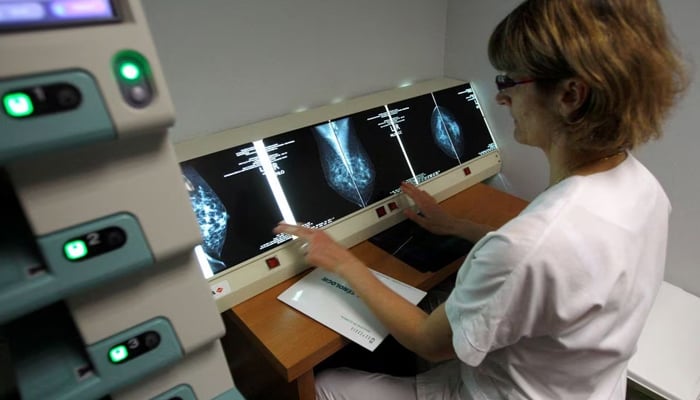AI-powered diagnostic systems bring promise to breast cancer screening
"AI has potential to be deployed in breast cancer screening, helping to address shortages of radiologists," says author
August 02, 2023

A new study from Swedish researchers revealed that screening for breast cancer using artificial intelligence (AI) can be safe without any false diagnosis, rendering scientists to term it encouraging for this disease early treatment.
Scientists at Lund University revealed in their findings that an AI system can detect breast cancer at a similar rate s two radiologists, however, they also suggested having more studies on this subject to see whether it can be used in screening programmes.
Research conducted earlier in the UK also looked at whether AI analyses scans, already looked at by doctors.
The new study revealed AI can provide a correct diagnosis.
In the study published in Lancet Oncology, it involved 80,000 women from Sweden with an average age of 54.
Half scans were analysed by radiologists and the other half by AI screening tool followed by an interpretation by one or two radiologists.
AI screening detected a total of 244 with cancer, compared with 203 women recalled from standard screening, without generating a considerable percentage of any incorrect diagnosis. This rate was equal in both groups; 1.5%.
Dr Kristina Lang, lead author of the study said: "AI has the potential to be deployed in breast cancer screening, helping to address the shortages of radiologists seen across the world."
She also called for more research to fully comprehend its potential and cost-effectiveness.
"The greatest potential of AI right now is that it could allow radiologists to be less burdened by the excessive amount of reading,” she said.
"While our AI-supported screening system requires at least one radiologist in charge of detection, it could potentially do away with the need for double reading of the majority of mammograms, easing the pressure on workloads and enabling radiologists to focus on more advanced diagnostics while shortening waiting times for patients."
According to an NHS England spokesperson, "this research is very encouraging, and plans are underway to assess the best ways of implementing this technology into the NHS Breast Screening Programme."
"AI holds huge promise and could save clinicians time by maximising our efficiency, supporting our decision-making and helping identify and prioritise the most urgent cases,” Dr Katharine Halliday, president of the Royal College of Radiologists, stated.
"There is a great deal of research interest in how AI could support reporting for mammograms because they are complex, requiring significant oversight and interpretation by clinical radiologists. The UK's shortfall in radiologists, at 29%, makes this challenging,” Dr Halliday noted.
"While real-life clinical radiologists are essential and irreplaceable, a clinical radiologist with the data, insight and accuracy of AI will increasingly be a formidable force in patient care."









